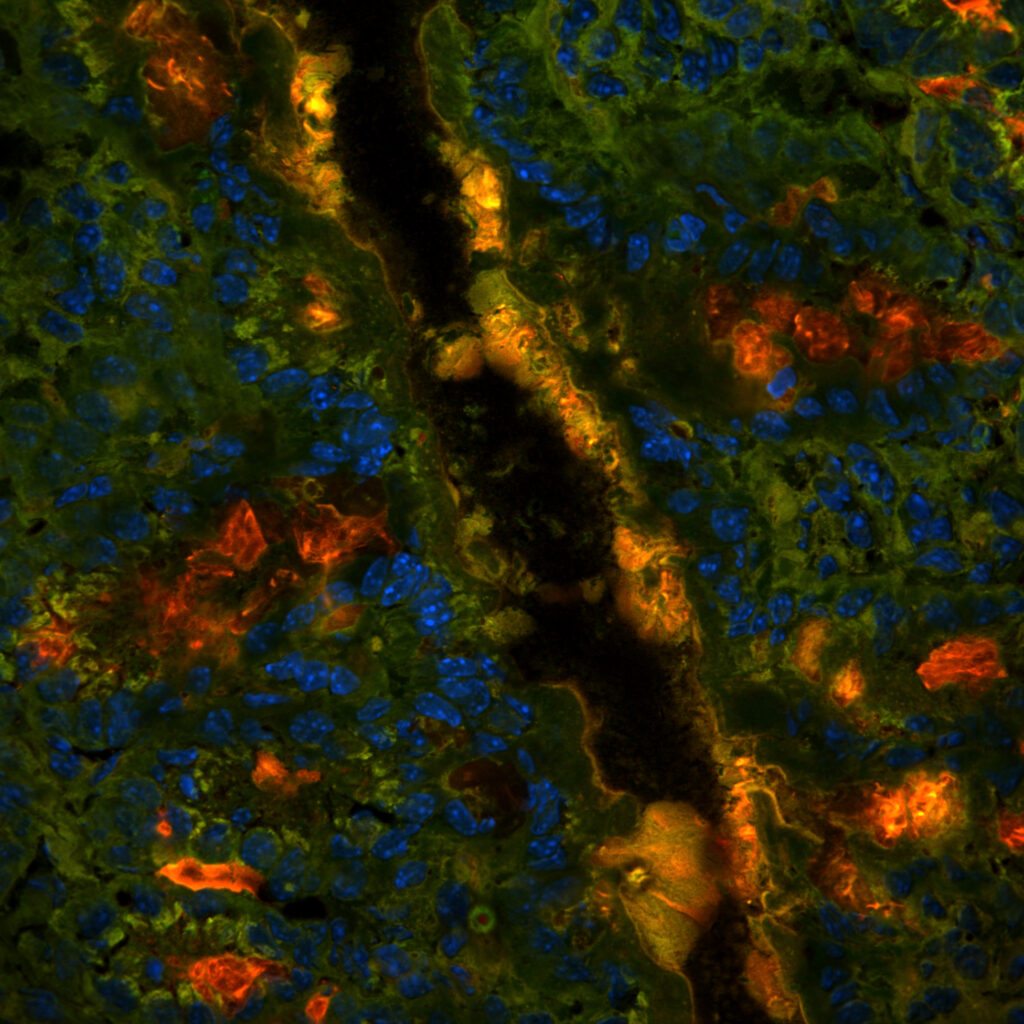
Murine colon with labeled mucosa (red), nuclei (blue), and autofluorescence/GFP marker protein (green)
Phage influence on health
The gut microbiome is an important factor for human health. Although we are learning a great deal about how the function of gut bacteria can influence various communicable and non-communicable diseases, major factor remains uncharacterized: bacteriophages
We are intensely interested in understanding how bacteriophages influence bacterial communities in the gut and how this relates to human health.
Ongoing Projects:
- Develop mouse models to allow us to understand the causal role of gut phages in the mammalian gut (Hollyn, Sydney)
- Study how phages influence how bacterial communities form and stabilize (David)
- Investigate the downstream effects of phage predation on bacterial hosts in the context of disease (Josh)
Phages for in situ modulation of gut bacteria
Directed alterations of the gut microbiome can lead to unintended side effects. Often, the approaches are non-specific, lack durability, or are generally ineffective.
We are investigating the use of phages as vectors for microbial gene delivery to precisely modify the function of pathogenic and commensal gut bacteria.
Ongoing Projects
- Establish colonization with commensal bacteria that can produce factors targeted against future pathogen infection (Roger, Lizzy, Lindsay)
- Load phages with genetic cargo to direct resident bacteria towards therapeutic function (Zach)
- Use phages to domesticate professional pathogens (Rita)
Biomaterial strategies to improve women’s health
Menstrual health can substantially impact a woman’s quality of life, education, and career. Women’s health has been historically under-investigated.
We are leveraging modern scientific advancements in biotechnology to improve women’s health by focusing on areas that have been traditionally dismissed.
Ongoing Projects
- Develop a modernized menstrual product to improve menstrual care and hygiene (Harsimran, Roger)
